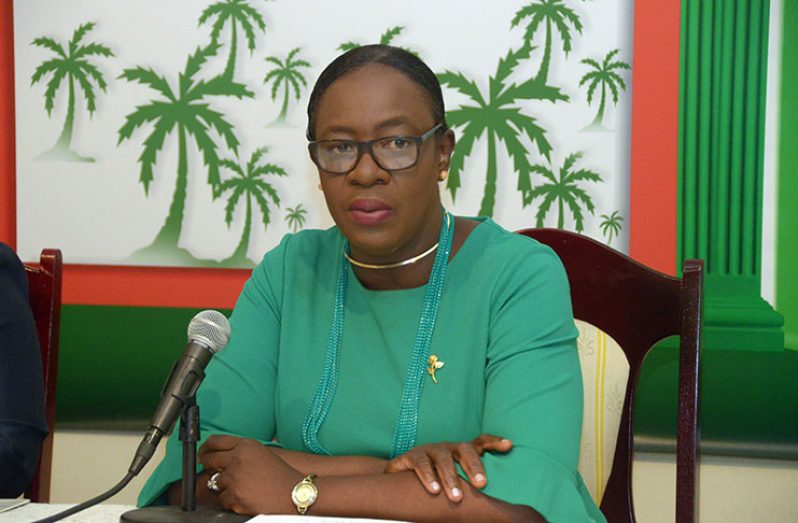GOVERNMENT has reintegrated over 800 teenage mothers back into learning institutions throughout the 10 administrative regions. Of this amount, 500 have been placed in the technical and vocational studies and the others chose to attend secondary schools.
This is according to Minister of Education, Nicolette Henry, who made the disclosure during a news conference hosted by the People’s National Congress Reform (PNC/R) at its Congress Place, Sophia headquarters on Friday. Minister Henry said amenities such as daycare facilities were also provided for the teenage mothers.
“In some instances, some mothers went back to the secondary schools where they initially started, while in other instances, some opted not to go to the same secondary school,” Minister Henry noted.
This move, she noted is in keeping with the policy of reintegration of adolescent mothers into the education system, as this is seen as paramount to the development of women and girls in Guyana.
Minister Henry stressed that by sending girls back to school, they will be better equipped with life and other skills. She believes that investing in girls’ education is investing in the development of a nation.
The APNU+AFC Government, she said, remains steadfast in its commitment to the socio-economic development of women and girls through transformative approaches.
Meanwhile, Minister Henry noted that currently, the Guyana Teachers’ Union (GTU) is in talks with government and when negotiations are completed, additional measures will be added to existing benefits for teachers.
“Some of the measures that are likely to take effect will certainly be in the line of salaries; we continue to look at expanding the number of subject areas whereby teachers can be graduate teachers if they had undertaken particular courses at the University of Guyana. We are also looking at providing additional support to teachers who are in the field of special education needs,” Minister Henry stated.
Additionally, Minister Henry said there will be curricular reform that is being geared towards students in nursery, primary and secondary schools.
“In order to respond to what will become of Guyana if it becomes an oil and gas economy, you have to have persons with the right skillset and the human resource to manage that, so it’s not specific to oil and gas, but in all areas there will be stepping up,” Minister Henry said.
This will, she said, be achieved by implementing a phased revision of the curriculum, defined not only as the content students are expected to learn in each subject and grade level, but also the way in which that content is taught.
Emphasis, the minister said, will also be placed on interactive, student-centered pedagogies, social inclusion and gender-informed approaches.
It was explained that the pilot schools will represent different regions of Guyana, including schools in hinterland region and riverine areas; different levels of student preparation and academic performance; different sizes and mixes of grade levels, and schools with students with disabilities.
Additionally, the pilot schools will be randomly assigned from a sampling frame in selected regions to enable an impact evaluation.





.jpg)








